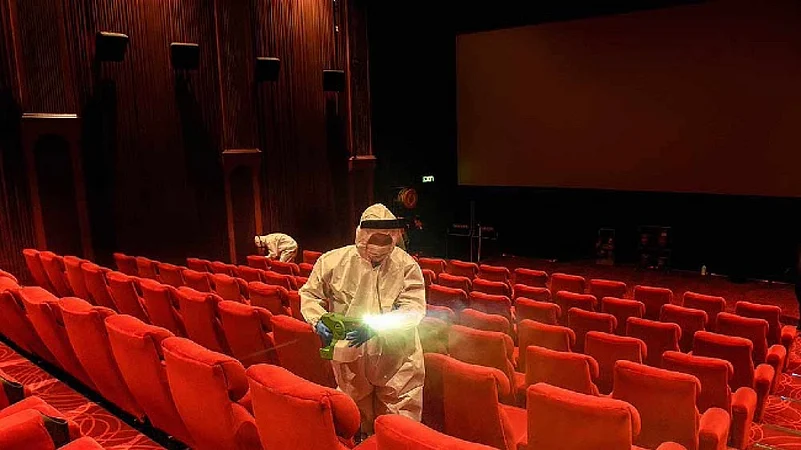Bar on opening theatres in 'C' category areas was imposed based on consultations with experts to address public health concerns in the wake of rising COVID-19 cases in the state, the Left government has told the Kerala High Court.
However, the government's contention has been opposed by the Film Exhibitors United Organisation of Kerala -- whose members run around 322 theatres in the state -- which has referred to various international studies and claimed that movie halls are safer than malls and restaurants whose operations are unaffected.
The organisation contended that all the studies, referred to by it, were of the view that cinemas offer a more 'COVID-safe environment' than bars, restaurants or gyms. The state, in its statement, on the other hand claimed that there was no institutional bias against theatres and the decision to close them down in 'C' category districts was taken after consultations with health experts.
The state has contended that in malls there is a moving population who do not stay at a single place for long and customers are permitted there only at the rate of one person within every 25 square feet. However, in theatres people are constrained to sit at a single place, in an air conditioned atmosphere, for more than two hours, increasing the risk of COVID infection.
The claims of the state have been disputed by the organisation, in its reply affidavit, which has contended that if the Kerala government was concerned about public health and safety, it would have banned the restaurants from providing dine in option to the customers as it is scientifically proven that eateries pose a greater threat of infection transmission.
"The hyper focus on theatre industry which has faced losses amounting to over 1000 crore rupees due to the pandemic would have the effect of running this industry to the ground and with it the lives of 10,000 employees directly and 20,000 employees indirectly."
"Thus the contentions of respondents 1 (state government) and 2 (Kerala State Disaster Management Authority) by way of the statement deserves san merit and are the ones which cannot be taken note of in the backdrop of the facts and realities pointed out above," the organisation, represented by advocate Arun Chandran, has said in its affidavit.
It has also claimed that several other states, like Delhi, which had high positivity rates permitted cinema halls to operate with 50 per cent occupancy. The court listed the matter for further hearing on Friday, February 4.
With inputs from PTI.


























